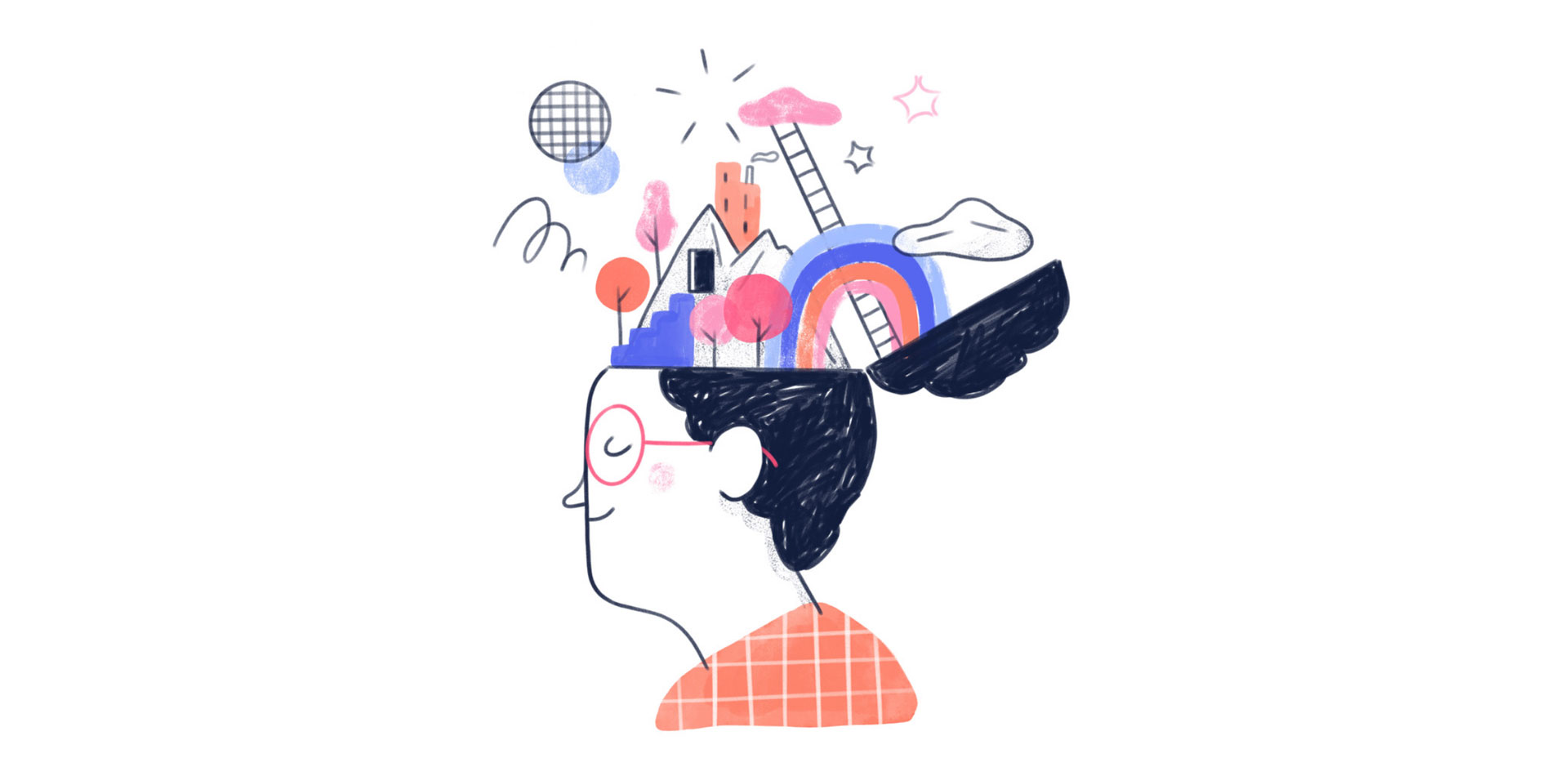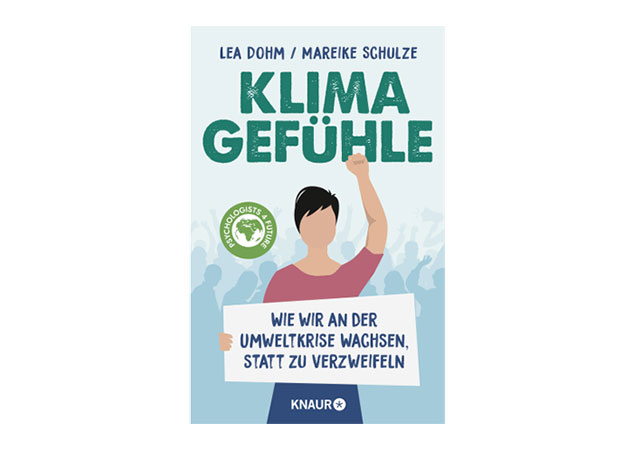
«We need manageable ways to take effective action.»
Anxiety and helplessness, hope and optimism – the climate crisis and all its challenges put us on an emotional rollercoaster. They often leave in a state of shock and resignation too. In this interview, psychotherapist Lea Dohm – the co-founder of Psychologists4Future – discusses ways to inspire others to take action and why we need companies with a new focus and fresh communication.
Lea Dohm, when it comes to the climate issue, there’s a lot of discussion about how best to reach people in order to inspire them to change the way they think and act. Mere facts (often) don’t seem to be enough and you often get the impression that people will only change their behaviour when they’re personally affected by these issues. Would you agree with that?
Lea Dohm: We are already all being personally affected, only to varying extents, and not everyone is equally aware of this. No, there are more important factors that drive people to take action than just whether or not they’re personally affected. For example, we need to be presented with viable ways of taking effective action. With regard to ecology and the climate, this is often not the case. Many people feel helpless and powerless and struggle to see how they can do anything about these issues.
That’s what we found during our research on the topic of water. People are terrified by the impending water shortages and droughts. On the other hand, many still don’t make even small efforts to reduce their water footprint, such as installing a water-saving shower head or setting up a rain barrel in the garden. How do you reconcile the fears on the one hand with the feeling of being able to make a difference on the other, and then start to take action?
Lea Dohm: This is a great example of the tricky relationship between individual and structural change. The issue of water shortages is so massive that we as individuals rightly question whether taking shorter showers will even make a difference. Taking shorter showers will help, but that’s not easy for everyone – we’re creatures of habit after all. Quickly fitting a water-saving shower head doesn’t require much effort, but we have a tendency to procrastinate with these things. Personally, I find it easier to reduce the water pressure a bit rather than have a shorter shower. I'm sure that’s true for others too.
As regards water, there are bigger, more effective measures you can take, such as adopting a predominantly plant-based diet. Ideally, this would be rolled out not only in our own homes, but also in restaurants, canteens and hospitals. Being honest about the major, urgently needed changes in the short, medium and long term would be an example of a good first step in this regard. Then we’d need transparency about which political measures offer which advantages and disadvantages to allow us as participating citizens to make an informed decision about who to vote for on the basis of more than just pleasant soundbites. This takes us back to the structural level, because public health education is also responsible for helping people with these exact issues, for example by creating transparency regarding the actual effectiveness of individual and political measures.
«We need businesspeople with ties to their communities who understand how serious the situation is and who put human rights and future peace above their own profit margins.»
Lea Dohm
psychotherapist and Psychologists4Future co-founder (photo: copyright T.W. Klein)
LinkedIn
What do you think it will take for people around the world to a) acknowledge the climate crisis and the changes it will bring and b) actively tackle these challenges instead of carrying on as normal in a state of anxiety, despair or inaction?
Lea Dohm: Improving public communication, such as in the media, politics and education, would really help. They need to present a message along the lines of: “The situation is very serious. The sense of discomfort this instils in many of us will be shared by most of humanity. There are actions you can take though, and these ones are the most feasible and effective.”
To this end, we got together with a working group of psychologists to develop a climate-related media guide. Most of the points in it can also be applied to the topic of water (www.medienleitfaden-klima.de). It would be wise to apply this broadly within the field of journalism.
And what can we do to be more resilient as a society?
Lea Dohm: It’s hard to answer that question in just a few sentences. Essentially, it would really help if we openly questioned our fast-paced, consumerist lifestyle of the last few decades. This lifestyle is not good for us. It’s bad for our minds, the planet and our coexistence both on a familial and societal level. One alternative could be to return incrementally to the ways of the past. We need to spend less time working and more time asking ourselves what we really need to lead happy lives. Most people would say we need health, time, justice and social bonds. Envisioning this kind of world and helping to shape it step by step would allow us to become much more resilient as a society.
And what needs to change in the business world? What kinds of businesspeople and companies do we need? What mindset do we need to have when tackling the challenges facing us?
Lea Dohm: We need businesspeople with ties to their communities who understand how serious the situation is and who put human rights and future peace above their own profit margins. I imagine that most people already know from their own work environments what needs to be done under the current environmental conditions.
If it were up to me, I would introduce something like the Hippocratic Oath taken by doctors, but for businesspeople. Their actions have enormous consequences on a societal level and they can make major contributions to the common good. I also hope that disregard for the common good and the destruction of the natural world also become punishable by law.
I’d like to end with a more personal question: What do you do when you’re confronted with the anxiety and overwhelming reality of all the problems and tasks we face?
Lea Dohm: I speak to people who feel similarly to me. We’re there for each other and that is hugely valuable. I withdraw from projects that seem too slow or unpromising and remind myself of the successes that have already been achieved. Aside from that: hold on and breathe.
Thank you for taking the time to talk to me.
 Check out the manual
Check out the manual Try out the toolbox
Try out the toolbox Discover the water mission
Discover the water mission Get to know the Migros Pioneer Fund
Get to know the Migros Pioneer Fund